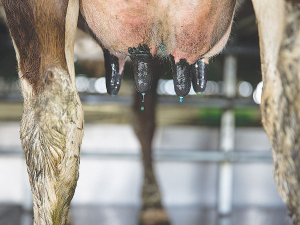The company says the adjustment comes because of recent shifts in global supply and demand of key raw materials, reinforcing FIL’s ongoing commitment to supporting New Zealand dairy farmers.
“During the peak of the Covid-19 pandemic, chlorhexidine prices rose significantly due to unprecedented disruptions in supply chains and increased demand for chemical-based products,” said Ian Palmer, senior director representative for GEA Farm Technologies New Zealand.
“Now, with the easing of the pandemic and stabilisation of global markets, demand has declined across some of our raw materials, allowing us to make cost adjustments and pass these savings on to our customers without compromising quality.”
Looking ahead, there are some anticipated cost challenges in other areas of the industry, particularly with iodine-based products.
“The demand for Iodine remains high due to ongoing pharmaceutical needs and global uncertainties, including the Ukraine-Russia conflict,” says Palmer. “With iodine mining operations confined to Japan and Chile, price volatility continues, but we remain vigilant and will continue to closely monitor iodine availability and cost.”











